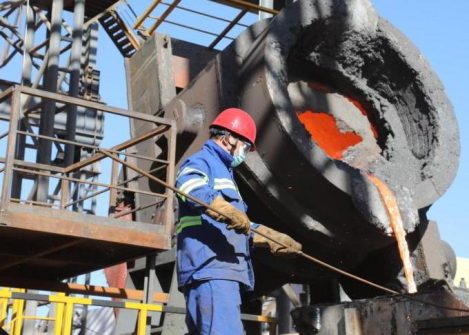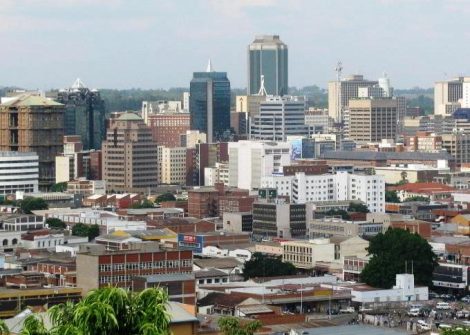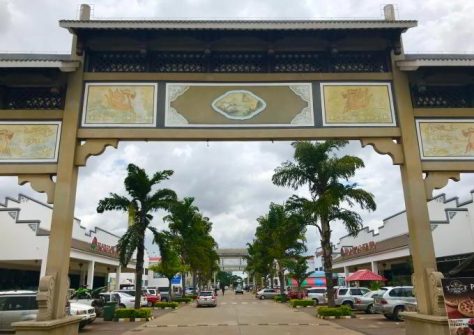Zimbabwe. Chinese plunder.

Investors from the Asian country control a large part of the country’s subsoil, conniving with powerful local people. The consequences for the communities are grave. Isolated from the West, the alternative chosen years ago by Harare still appears problematic
Zimbabwe faces a myriad of challenges: from political unrest to prolonged social instability. A climate that discourages investment. And that makes the country another piece of the great, well-known contradiction of Africa: the subsoil is rich and yet the communities are poor and without work. One fact above all that gives substance to the abundance we write about: Zimbabwe is the first producer in Africa and among the first ten in the world of lithium, the essential “white gold” of the energy transition.

President of Zimbabwe, Emmerson Mnangagwa. Photo: Mqondisi Dube / VOA
The beginning of the crisis gripping Harare can be found in the late 1990s, in the midst of the thirty-year government of the then-president Robert Mugabe. The former head of state, dismissed in 2017, died in 2019, but his Zimbabwe African National Union (Zanu, now Zanu-PF) still governs the country. Since the end of the last century, accusations against Mugabe date back to repressing opposition and illegally and violently confiscating lands that were owned by white farmers during the colonial period. Accusations that have led the international community to isolate the country economically and politically, with serious consequences for the population.
Chinese Crutches
And this is where a new, important player in Zimbabwe’s recent history comes into play. With its roads to the West blocked, Harare has sought salvation in China. Recently, former opposition leader and MP Eddie Cross has highlighted some of the most dysfunctional elements in the relationship between Harare and Beijing.
Cross has been investigating Chinese activities in Zimbabwe since 2012, when he was still a member of parliament.

A Chinese worker at the Dinson Iron and Steel Company (DISCO) in Manhize, Midlands Province. The Chinese companies control 90% of Zimbabwe’s extractive sector. Photo: Xinhua
In an editorial on the news portal Bulawayo24, he reconstructs a story of collusion between Beijing companies and government companies and military leaders, as in the complex case of the diamond mines of Marange, in the east of the country. More generally, Cross describes a panorama in which Chinese companies are carrying out the “plunder” of resources in Zimbabwe that has so far brought very few benefits to the local population. In exchange, environmental devastation, infrastructure investments that ignore the needs of the population and only serve the exploitation of the subsoil, and unfavourable contractual terms.
As well as a “classic” model based on mere export, without the creation of on-site added value.
Made for China
The operations of Beijing companies in Zimbabwe are explored in depth in a report published last year by the civil society organisation Centre for Natural Resources Governance (CNRG), entitled Investments or Plunder: An Analysis of Chinese Investments in Zimbabwe’s Extractive Sector. The premise is that Chinese companies control 90% of Zimbabwe’s extractive sector, with a presence in all 64 districts of the country. In 2023, 121 different Chinese players in the sector invested $2.79 billion. According to the director of the Tracy Mafa Centre, “many Chinese companies do not have proper registration documents”.
The findings, the activist continues, speaking about the report, “suggest that these companies are protected by political actors who make it difficult for regulators to enforce the rules.

A bird’s eye view of Harare. Chinese companies’ unscrupulous practices have consequences. Corruption is widespread and used to influence politicians and local and traditional authorities. 123rf
These companies appear to operate above the law and under the shield of influential figures in the local government.” The unscrupulous operations of Chinese companies have consequences in all fields. The report shows that corruption is a widespread practice and is used as a means to influence politicians, local and traditional authorities. In the latter two cases, bribes replace the effective participation of communities in decision-making processes, with enormous consequences. The environmental impact is also more than significant: while impact assessments are systematically bypassed, the extractive model chosen by Chinese companies causes deforestation, the destruction of agricultural land, and the pollution of water sources. And here too, the substantial “alignment” between government elites and Beijing’s investors returns: the authorities do not intervene, or when they do, they end up favouring the interests of entrepreneurs. In the words of the director of the CNRG, Farai Maguwu, recommendations and fears already heard many times in Africa return: “We support policies that give priority to community rights, environmental sustainability and transparent commitment,” says the director. “Without them, we risk turning our natural resources into a curse rather than a blessing.”
Questionable dismissals
The complicity of Zimbabwean politicians with Chinese companies, denounced in the CNRG report, can help us understand a recent decision by President Emmerson Mnangagwa, who last April fired Environment Minister Sithembiso Nyoni, who had been in government positions since 1995. Shortly before, ZimParks, the state agency for the management of national parks that answers to Nyoni’s ministry, had urged the executive not to approve a Chinese project for mining operations in Hwange Park, the country’s largest protected area and a sanctuary for black rhinos. There is also a rift everywhere between Chinese companies and local communities. In a recent case, about 20,000 inhabitants of the town of Domboshava, not far from the capital Harare, risk being evicted by the Aihua Jianye company.

Harare. Longcheng Plaza shopping mall. Shutterstock/VV Shots
The Chinese company wants to open a quarry on 225 hectares of land that belongs to the community. Aihua Jianye has already fenced off the area and dug three small dams as sources of water supply for its future plants without first consulting the inhabitants. Citizens’ committees and traditional village authorities have already taken action to block the development of the project. But cases of exploitation and illegal behaviour are reported throughout the country. Bindura is the capital of the province of Mashonaland Central, in the north of the country, and is the epicentre of various mining activities, from nickel to gold. A resident of the city who preferred to remain anonymous reported: “I know of several cases of people dying while they were underground due to poor working conditions. Chinese entrepreneurs do not care about fairness or safety. I do not blame them,” the resident of Bindura comments, “but rather the government that allows them to operate in this way.” Environmental devastation and exploitation are back in a complaint relaunched last April by investigative journalist Hopewell Chinono, in self-exile abroad after facing several arrests and legal problems in his homeland. In a testimony from Goromonzi, a province in eastern Mashonaland, still in the north of Zimbabwe and in an area where the extraction sites are all owned by the Chinese, there is talk of dozens of trucks loaded with lithium per day while all around “there is not a clinic, a hospital, a decent road and much less work for those who live in the area”. Zimbabwe, Chinono comments, “is being plundered for the benefit of the Chinese and the corrupt elites of Zanu-PF. The sooner we understand that Beijing is our colonial master, the better”. (Open Photo: Shutterstock/Dwiangga)
Joseph Chirume



